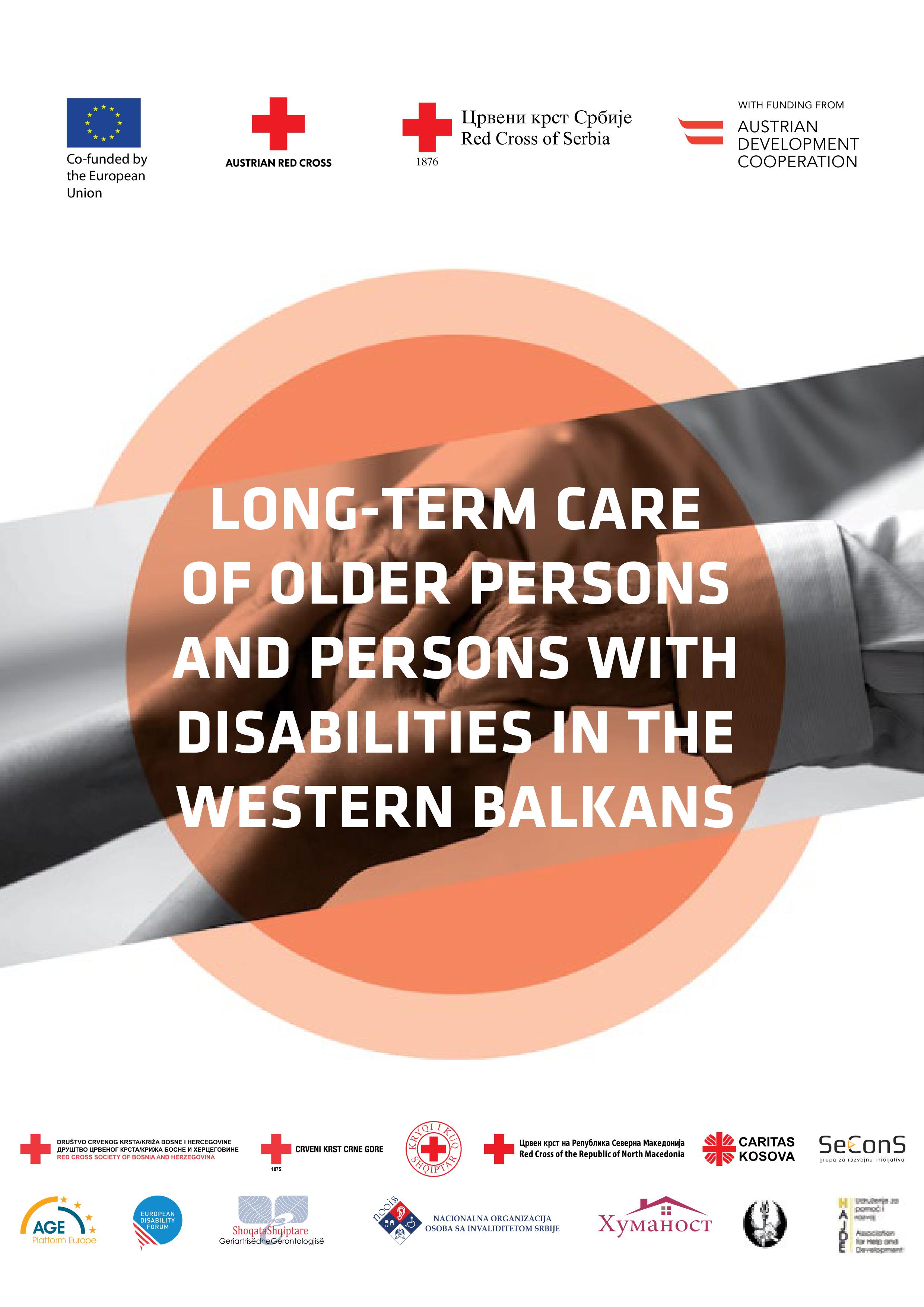- resources
- publications
- long-term care of older persons and persons with disabilities in the western balkans
Long-term care of older persons and persons with disabilities in the Western Balkans

This study was developed as part of a three-year initiative in the Western Balkans region entitled “Strengthening the resilience of older people and people with disabilities during COVID-19 and future disasters”. The project is coordinated by the Serbian Red Cross and supported by the European Union, the Austrian Development Agency and the Austrian Red Cross. Launched in late 2020, the project connects civil society partners from Serbia, Albania, Bosnia and Herzegovina, Montenegro, Northern Macedonia and Kosovo*, as well as large civil society networks representing older people and people with disabilities at the EU level. Within this project as one of the project partners, SeConS – development initiative group is in charge of the research component and formulation of recommendations with the purpose of strengthening the resilience of older persons and persons with disabilities (PWD) in the Western Balkans during Covid-19 and future disasters and development a study of the situation in this area.
*This designation is without prejudice to positions on status, and is in line with UNSCR 1244/1999 and the ICJ Opinion on the Kosovo declaration of independence.
The aim of this study is to provide insight into the facts that will enable the formulation of recommendations and measures for public policies that would be aimed at how to increase the capacities of service providers and civil society organisations (CSOs), but also to increase financial contributions to ensure better access to long-term care services for older persons and people with disabilities under normal circumstances, and especially in case of emergencies. In addition, this study provides a comparative overview of the condition of long-term care in the Western Balkans and shows similarities and differences, thus enabling mutual learning and finding solutions.
The analysis provides an overview of the situation regarding long term care in the West- ern Balkans. Study is based on the data collected in several phases and by applying several methods:
Desk analysis
The desk analysis presents an overview of long-term care regulations, relevant publications, publicly available data on the capacity to provide various long-term care services and the number of beneficiaries for each of the project locations. The desk analysis aim was to show how long-term care is integrated into the social and health care systems and to present the current conditions of functioning in the area of long-term care in each of the locations included in the project.
Quantitative research
The research was conducted in each project location11 on a sample of 650 older and disabled persons (PWD) in need of long-term care or the total sample of 3,900 subjects for all locations (the total number of persons contacted in the first phase of data collection was 7,289). Since people over the age of 65 and PWD aged 18–64 are most in need of long-term care and welfare, the sample was designed to include 550 persons over the age of 65 and 100 PWD in need of long-term care. The research was done with CATI (Computer Aided Telephone Interviewing) data collection method. In order to include only those in need of long-term care in the sample, the respondents were asked before the start whether they have certain difficulties that result in them needing support (visual and hearing impairment, trouble with moving, etc.), as well as whether they need the support of others in their daily functioning regardless of their difficulties. In case when the respondent was not able to participate in the survey due to illness or other physical impairment, a questionnaire on the needs and services used by the respondent was conducted with their legal guardian. During the research process, the highest ethical principles were respected, which imply voluntary participation and anonymity of the participants.
Qualitative research
At each project location, in-depth interviews were conducted with long-term care providers and representatives of relevant institutions in charge of formulating policies in the area of long-term care, as well as beneficiaries of long-term care services. The aim of this part of the research was to review in more detail the findings obtained by quantitative research and to identify points that can be improved in the functioning of long-term care systems from the perspective of decision-makers and service beneficiaries themselves.
A study was done for each project location, available in the local and English languages. The data in this report has been updated compared to the data that can be found in the national studies.
